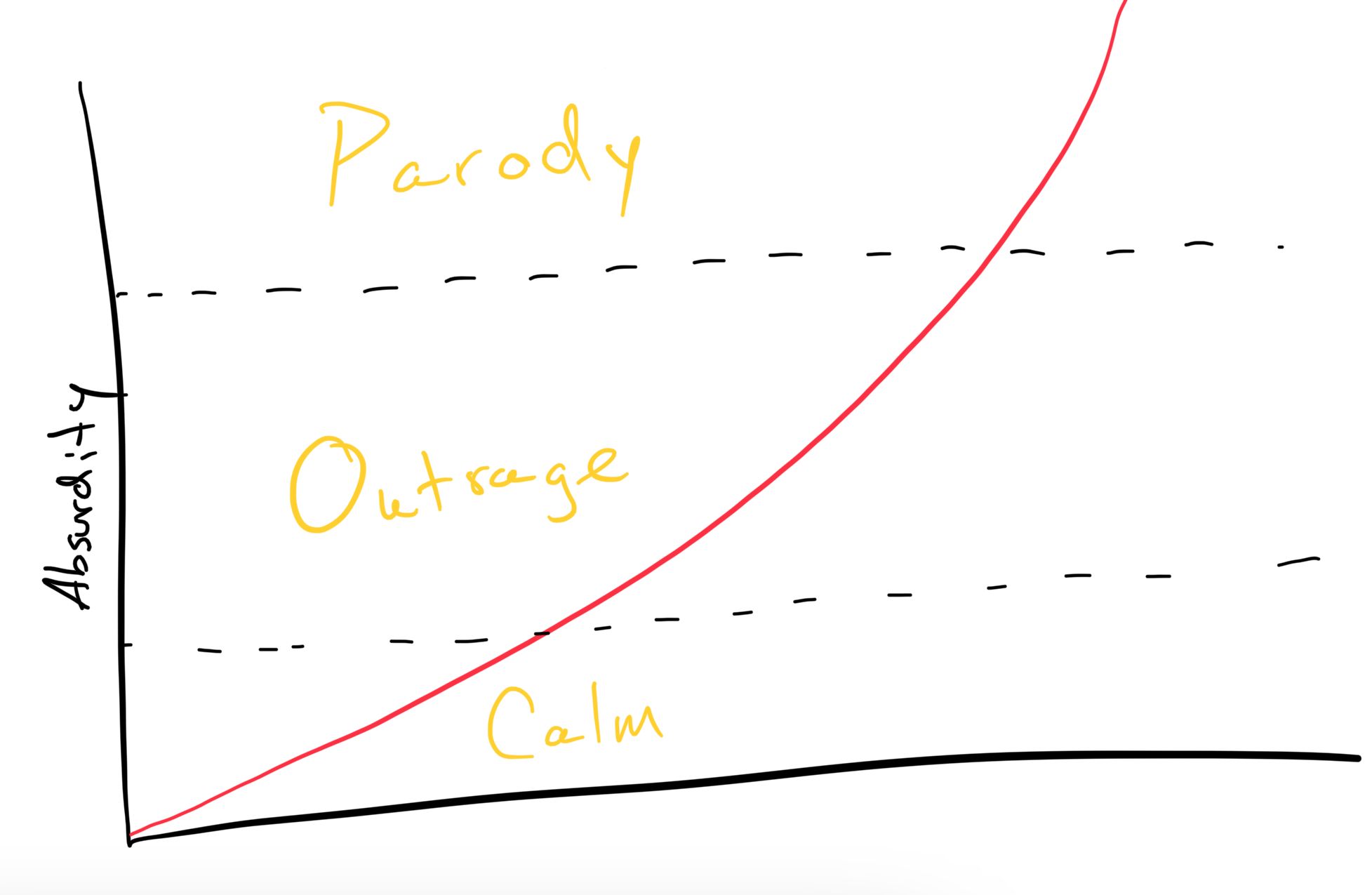I Made a Mistake

Oops 🤦🏻♂️
The Context
Yesterday evening I was browsing the web and scrolling through my Twitter timeline and a common thread people were pulling on was this idea that Apple could have made iMessage for Android and decided not to for business reasons. People seemed shocked by the “revelation,” and I was left scratching my head at why that was.
I was curious, and as the internet is very good at doing, I was able to look at one thing about this topic and then quickly find another and another and many more things about this supposed revelation. The takes were hot and among a subsection of the tech community there was a common response of thing like, ‘OMG, Apple admits they could have done it, but chose not to.”
The Mistake
After seeing a bunch of these takes expressing shock, shock(!) that Apple had the technical ability to do this, I wrote a quick article about outrage theater, and I pulled in a couple tweets that I thought were the most ridiculous. One was from DHH and another from someone I’d never heard of. The DHH one was legit and definitely played into my conclusion, but the second one was someone making fun of people like DHH; my mistake was taking that second tweet seriously.
Within minutes of posting the article, a couple people reached out to inform me that the tweet was parody, and I promptly removed the tweet from the article. Depending on how often your RSS service refreshes feeds, you may not even have seen it in your RSS reader.
Why it Happened
I try to make as few as possible, but sometimes I simply goof and post something wrong here. I don’t like it, and I try to correct it as soon as I’m aware of it. Those instances don’t warrant follow up pieces on the error, though, so what’s different about this one?
Well, outside of the fact this one was just embarrassing, the path that lead me to think that tweet was serious is kind of interesting and I think explains how we come to believe things that are not true, but feel like they could be.
I saw the original article and then started reading tons of hot takes on social media. There are hundreds, probably thousands of people who were shocked at this revelation and made statements that had my eyes rolling to the back of my head. Some people were mildly shocked, and others were quite distressed. When choosing examples for my post, I went with one from a prominent Apple critic, and one from a random person who expressed the most extreme opinion.

There are reasonable concerns you could have about this topic, then there is righteous outrage you can have to drum up engagement, and then you can go further down that road until you get to actual parody. The problem for me in this situation, and I would suspect many people in many situations, is that as I read more and more takes in the “outrage” spectrum approaching self-parody, it made it so that actual parody seemed like a genuine opinion.
Put another way, when there are opinions ranging from calm to outrage to parody, you can sometimes get lost in the weeds and miss the line between outrage and parody of that outrage. When you zoom out then it’s easier to see, but when you’re in deep, it’s harder to tell.
And I think this applies to more than just distinguishing between genuine outrage and parody of that outrage; I think it also applies to political extremism. You may start as someone who just wants lower taxes, and before you know it you’re storming the Capital because you believe your political opponents are lizard people who drink the blood of children and are stealing an election from the savior of all mankind. That’s just one example, but you can swap in tons of other examples.
My Takeaway
For my part, this was a good reminder to double check that exceptionally bad takes are genuine and not parody. If it’s too ridiculous to be true, then really double check that it’s genuine.
Additionally, it was a reminder that sometimes the deeper you look into a topic, the more you can get lost in it and lose sight of the bigger picture. Examples just in the Apple tech community I’m a part of, we know a ton about Apple and sometimes come off as tone deaf to the rest of the world. Similarly, the execs at Apple, who have more information on the company than anyone else, can express surprise that people are upset about something they do.
Thirdly, I should take my own advice from last week and delay my blog posts for a little bit to make sure that I still agree with it when it goes live. I’m not positive I would have caught this before publishing if I’d delayed it an hour, but I would have stood a better chance of correcting the error.
And finally, it has been a healthy reminder that the internet can push anyone down a rabbit hole towards believing something false. We all try to be rationale people, and we’re all convinced that what we believe is reasonable and other people are crazy, but none of us are above being pushed into weird (and sometimes dangerous) beliefs with just a few clicks.
Header image by Sarah Kilan on Unsplash.
Discussion